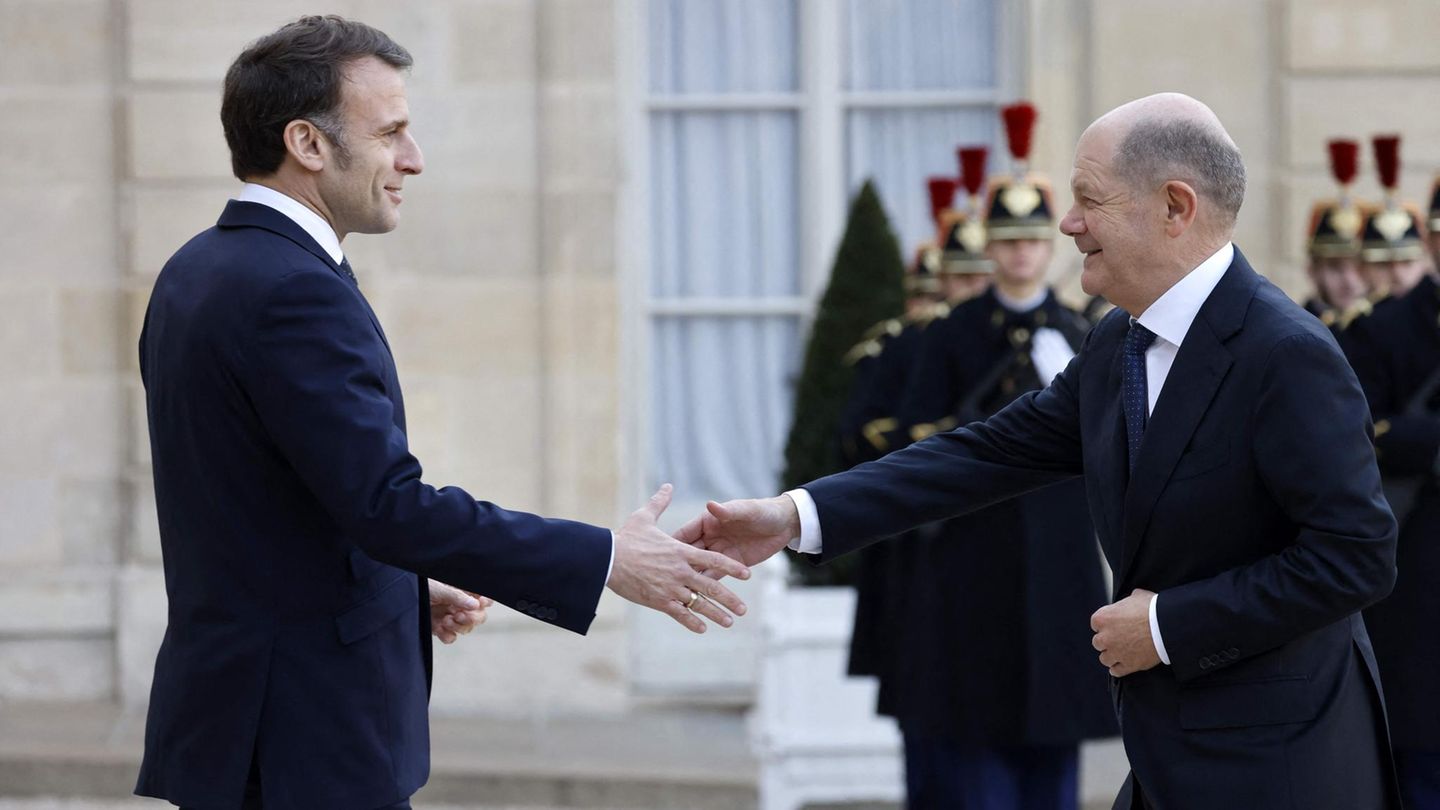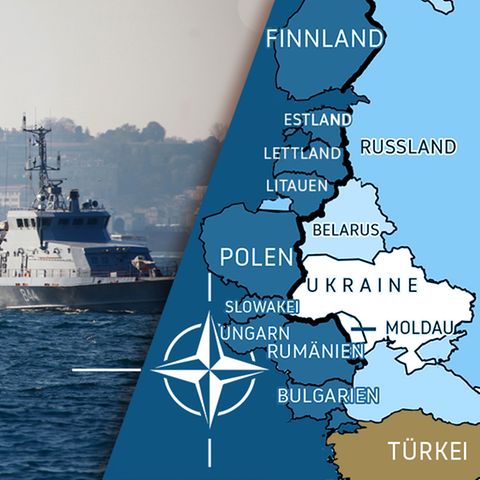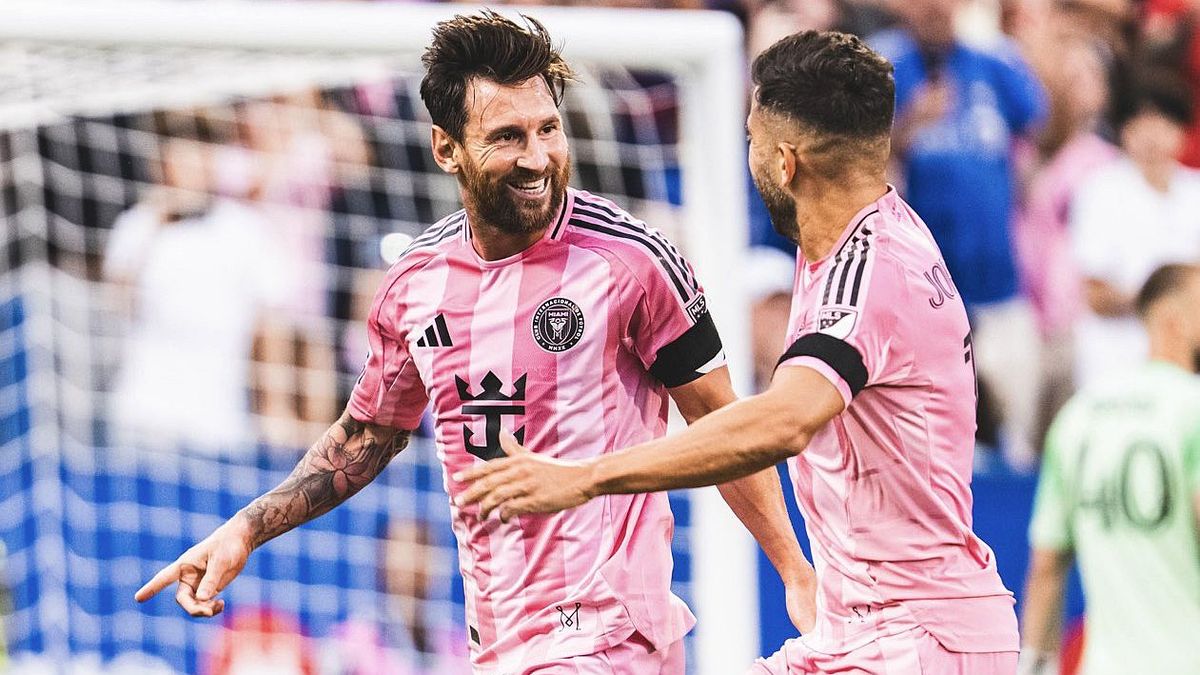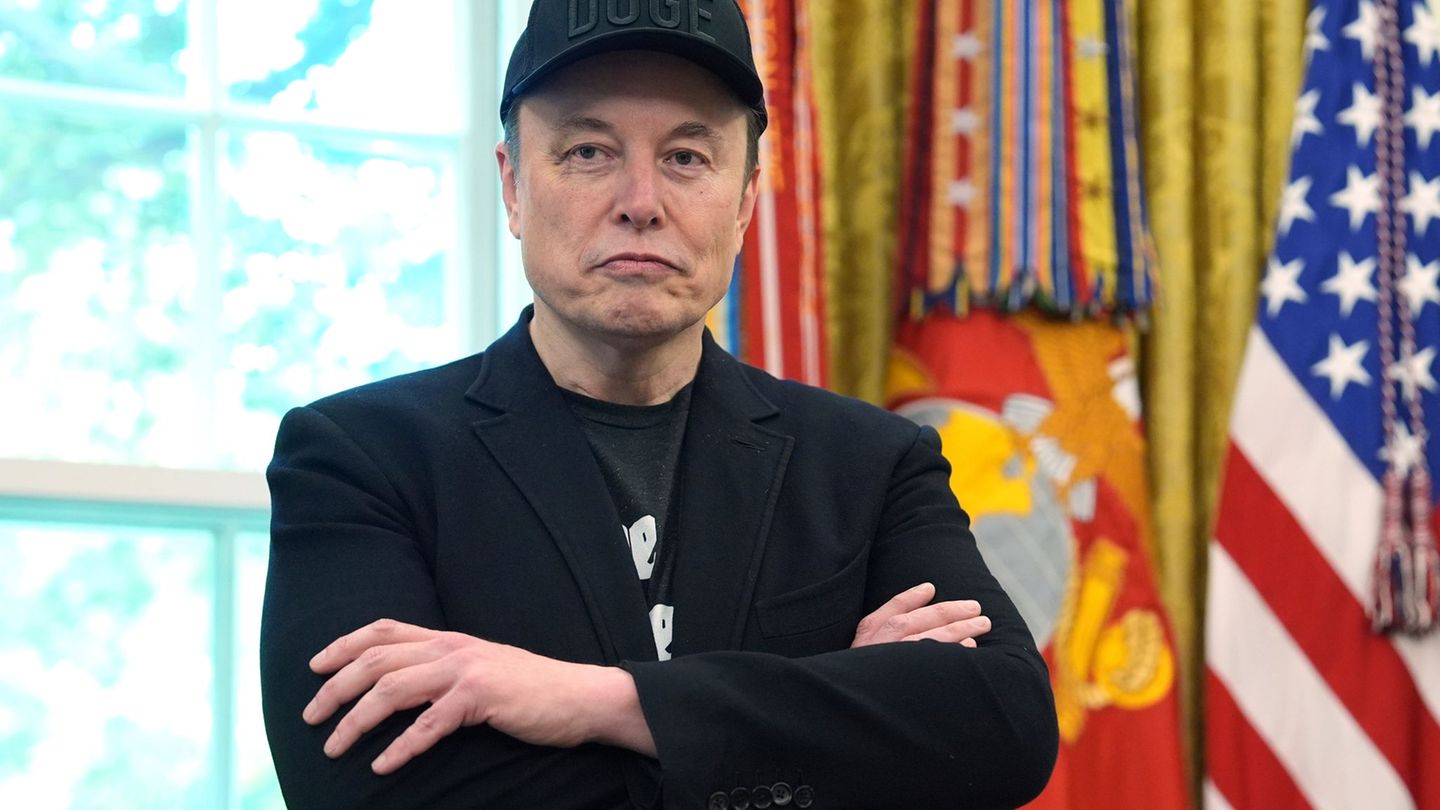Ukraine summit in Paris
Donald Trump has set the course – Europe is looking for answers
Copy the current link
Add to the memorial list
The USA is putting pressure on Europe – but how? At the Ukraine special summit in Paris, government heads advise on a common line.
Short campaign break for Olaf Scholz: At the invitation Emmanuel Macron, the Federal Chancellor traveled to Paris for a hurried crisis meeting via the Ukraine war. The informal summit brought European heads of government to a table that is “capable and willing”, according to the diplomatic formulation of the Élysée Palace: Blockades are to be avoided to promote common paths. In other words, Hungary Prime Minister Viktor Orbán was apparently not desirable.
In view of the US positions, Europe has to “stronger, better and more coherent” for collective security on the continent, the host said in advance. In addition to France and Germany, Great Britain, Poland, Italy, Spain, and the Netherlands took part. Denmark represented the Scandinavian and Baltic states; NATO Secretary General Mark Rutte and EU Commission President Ursula von der Leyen were also on site.
Ukraine meeting is the beginning and wake-up call
Paris understands the meeting as a prelude to further discussions – and probably also as a wake -up call for the EU. Instead of complaining that the United States is discussing the head of Europe and Ukraine with Vladimir Putin, one should communicate about how and on what conditions Europe can guarantee security guarantees in the event of a ceasefire. At least that is the position of France, where Emmanuel Macron has already taken cautious probes with regard to a European troop for military security.
As a reminder: Macron had ensured almost exactly a year ago with his statement that to secure Europe, the posting of soil troops to Ukraine should not be excluded. Olaf Scholz in particular was outraged and distanced himself from his French partner with drastic words. Macron seemed isolated in Europe. But now France’s insistence unfolds a new urgency on sovereign strategic re-positioning of the EU: If Europeans want to have a place at the conversation table with the USA, they have to act-and formulate their own goals and ideas.
Since November, before Donald Trump’s re -election, in the event of a withdrawal from the United States. to station soldiers in Ukraine if necessary to secure an armistice. Sweden is also considering participation in a European peace force. The calculation behind this discussion: If the Europeans present a concept and specifically say what security guarantees could look like for Ukraine, they must also be involved in potential negotiations on an agreement. After all, it’s not just about the future of Ukraine.
Scholz: Talks about European peacekeepers “premature”
On the German side, on the other hand, talks about European troops are considered premature. The Ukraine is still in a “brutal war,” emphasized Chancellor Olaf Scholz, who had to leave the Parisian meeting due to an appointment in Berlin around 7 p.m. His position had already been communicated before the summit began. Otherwise, she would hardly have surprised someone: Germany stops while France and Great Britain make a pace: the distribution of roles is now known. However, Scholz ‘statement caused astonishment-at least among non-German journalists-that it was a debate “at the wrong time and the wrong topic”. Apparently one seems to be a negotiation result in Germany about the future of Europe instead of wanting to help shape.
After a good three and a half hours, the meeting ended in the Élysée Palace, a meeting that France President Emmanuel Macron had informed shortly before Donald Trump. There were no pioneering decisions, but nobody expected that in advance. After all, a line is more pressing than ever: In order to continue working with the USA, Europeans need a credible and convincing plan for their defense and strategy. The Trump government will not pay much patience.
Source: Stern
I have been working in the news industry for over 6 years, first as a reporter and now as an editor. I have covered politics extensively, and my work has appeared in major newspapers and online news outlets around the world. In addition to my writing, I also contribute regularly to 24 Hours World.





